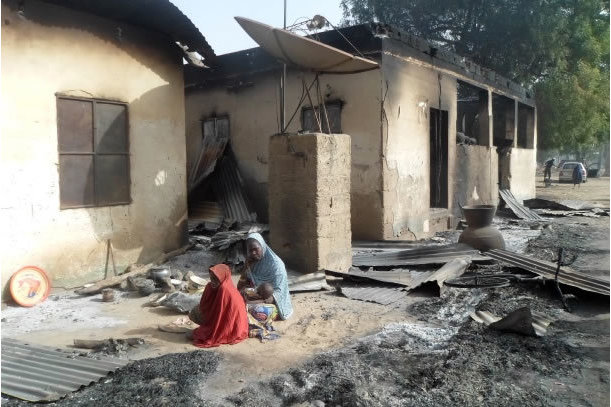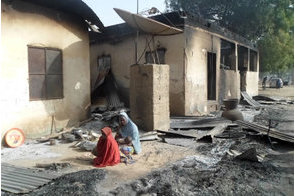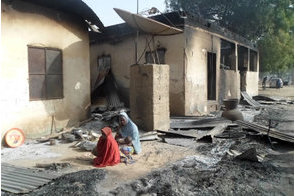Latest News
Nigeria loses 7 per cent of GDP to violence

News Highlight
According to the latest Global Peace Index, the economic cost of violence in Nigeria as a percentage of GDP in 2018 was 7 per cent.
Nigeria, the largest economy in Africa and the world’s most populous black nation, has – for the second consecutive year – retained its position as the 16th least peaceful country in the world, ranking 148th out of 163 countries. The country is also ranked 40th out of the 44 Sub-Saharan African (SSA) countries surveyed by the Institute for Economics and Peace (IEP) for its 2019 Global Peace Index (GPI).
Although the report shows there has been a reduction in the number of deaths resulting from internal conflicts in the country, it states that the economic cost of violence in Nigeria as a percentage of GDP in 2018 was 7 per cent. Globally, the economic impact of violence decreased by 3.3 per cent to $14.1 trillion for the first time since 2012.
According to the IEP, Iceland remains the most peaceful country in the world. It is followed by New Zealand (2nd), Portugal (3rd), Austria (4th), Denmark (5th), Canada (6th), Singapore (7th), Slovenia (8th), Japan (9th) and Czech Republic (10th). Afghanistan has displaced Syria from being the least peaceful country in the world, compared to the previous GPI, with Syria becoming the second least peaceful country.
In SSA, South Sudan is ranked the least peaceful country in the region, while Mauritius, which ranks 24th on the GPI, is the most peaceful country in SSA. It is followed by Botswana (30th), Malawi (40th), Ghana (44th), Zambia (48th), Sierra Leone (52nd), Tanzania (54th), Madagascar (55th), Senegal (58th) and Liberia (59th).
“Although peace has improved in the 2019 GPI, a deeper analysis finds a mixture of positive and negative trends,” said Steve Killelea, Founder and Executive Chairman of IEP. “Many of the trends recorded over the last decade highlight the complexity of global peace.”
According to the latest GPI, 24 per cent of Nigeria’s population lives in areas of high exposure to climate hazards. The impact of lack of water has also affected the conflict dynamics in Nigeria. The GPI report says Lake Chad, which serves as a major source of fishing and farming, has lost 90 per cent of its surface area in the past 40 years due to climate change and environmental mismanagement. This has resulted in rising unemployment and related food insecurity, which has been contributing to Boko Haram’s successful recruitment of unemployed youths in the north-eastern part of Nigeria.
The GPI report, according to the IEP, provides the most-comprehensive data-driven analysis on peace, its economic value, trends, and how to develop peaceful societies. The report covers 99.7 per cent of the world’s population and uses 23 qualitative and quantitative indicators to compile the index. These indicators are grouped into three groups: ongoing conflict, safety and security, and militarization. This year’s report also includes research on the possible effects of climate change on peace.
Related News
Latest Blogs
- The Museum of West African Art saga
- The complexity and complication of Nigeria’s insecurity
- Between bold is wise and wise is bold
- Prospects of port community system in Nigeria’s maritime sector
- Constitutionalism must anchor discipline in Nigerian Armed Forces
Most Popular News
- NDIC pledges support towards financial system stability
- Artificial intelligence can help to reduce youth unemployment in Africa – ...
- Africa needs €240 billion in factoring volumes for SME-led transformation
- ChatGPT is now the most-downloaded app – report
- Green economy to surpass $7 trillion in annual value by 2030 – WEF
- CBN licences 82 bureaux de change under revised guidelines






